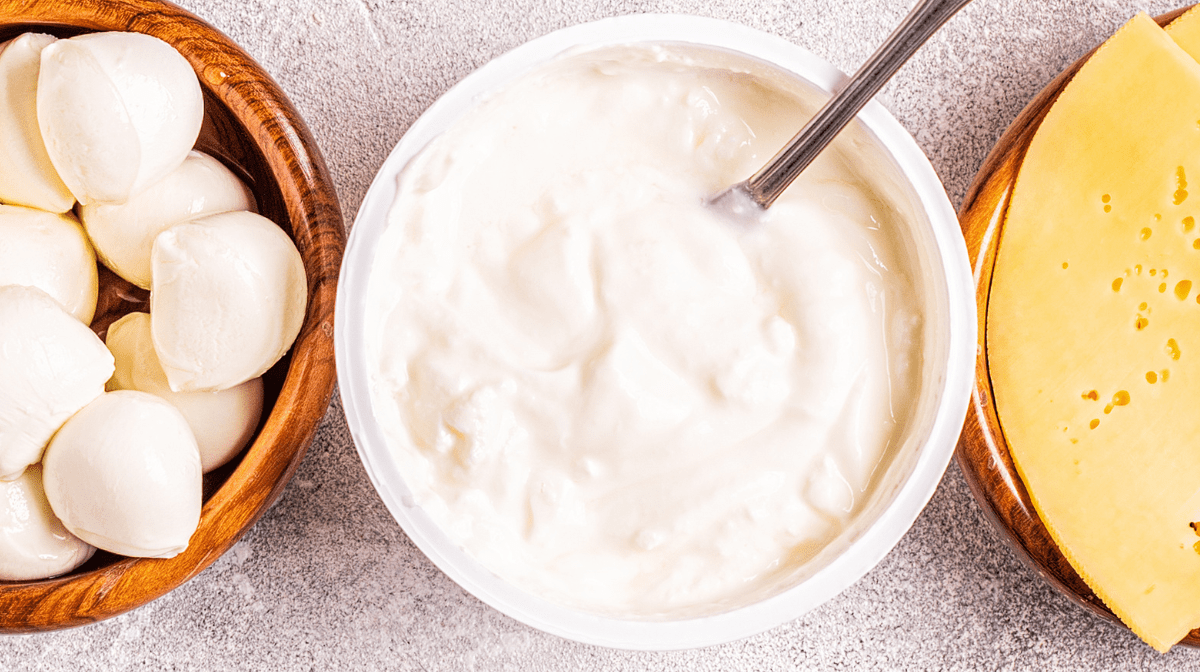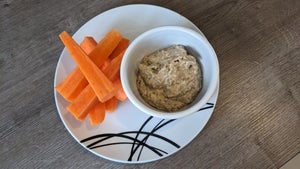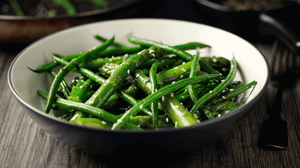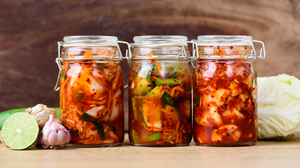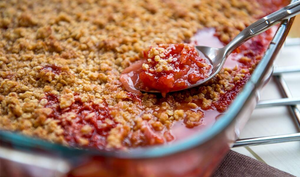When it comes to our health, more and more conversations are turning to probiotics and the gut. You may have been hearing people throw around a range of (relatively new) terms like microbiome, gut bacteria, gut flora, and prebiotics – or you might have even heard people talking about specific bacterial strains, like lactobacillus acidophilus, for example.
New research on the gut and the microbiome is being published every day, and a lot of this information is seeping into public consciousness – and casual conversation. But how much do we really know, and how can you use the facts to support your gut health? Here, we’ll take you through the basic facts and the science on probiotics, prebiotics, and everything in between – so you can be empowered to make the best decisions possible for your gut health.
What are probiotics?
First of all, what do people mean when they talk about probiotics? Are the probiotics in your gut, probiotic foods, and probiotic supplements all the same thing?
To answer these questions, we need to take a closer look at the gut. Every person’s gut – which is the term for the system that helps you digest your food and turn it into energy, including the mouth, the colon, and the intestines – is filled with an array of bacteria. Some of these bacteria are ‘good’ bacteria that help us to digest our food and protect against pathogens,[1] whereas some of these bacteria aren’t so great for us. The good kind of bacteria, which every gut needs to function healthily, are called probiotics.
Probiotics have a number of important functions beyond just digestion. Research on the topic is still ongoing, but studies have linked probiotics with immunity,[2] mental wellness, and relief of the symptoms of irritable bowel syndrome (IBS).[3]
Specific probiotics have also been linked to certain benefits. To name one example, pregnant or breast-feeding mothers who take Lactobacillus acidophilus are less likely to have children who suffer from eczema.[4]
Probiotics are an important part of our gut microbiome – and looking at this complex internal ecosystem as a whole, it’s clear how much our gut is linked to our overall health. Scientists have even found that patients with certain kinds of cancer often display a different gut microbiome composition to healthy individuals.[5]
Because probiotics are so important in our digestive system and in our overall health, many people choose to employ changes in their diet and lifestyle to increase the probiotic numbers and the diversity of flora in their microbiome. To make life a little easier, and support our health even in times when our diet isn’t as probiotic-filled as it could be, you can choose to take probiotics in a supplement form. Probiotic supplements usually contain a number of strains of live bacteria, and are taken daily.
Our Alflorex® capsules contain live, friendly bacteria, as well as calcium – which contributes to the normal function of digestive enzymes. They’re free from gluten, soya, dairy, lactose, and GMOs – making them suitable for all kinds of lifestyles and dietary needs. Alflorex® contains naturally occurring ‘good’ bacteria that are part of the Bifidobacteria family, which mothers normally pass to their babies at birth.
Probiotics in food
Food and bacteria are two words most of us wouldn’t want to see in the same sentence. But when it comes to probiotics – bacteria in our food is a good thing! Certain foods, such as fermented foods, and an array of different vegetables, are high in probiotics. Miso, which is made from fermented soybeans, is a great option if you want a food that’s high in probiotics, and both kimchi and sauerkraut are probiotic-rich too.
Yoghurt and kefir are also very high in probiotics – but be sure to check the number of live bacterial cultures contained in the yoghurt you buy, as not every yoghurt is made equal. More bacterial cultures = more gut-supporting probiotics.
The difference between probiotics and prebiotics
Another word you will often hear used in conversations and in the material you read about gut health is prebiotic. What are prebiotics, exactly? An important distinction to make is the difference between probiotics and prebiotics. Probiotics are the good bacteria living in your gut (and they're also found in certain foods, and can be taken in supplement form). Prebiotics, however, are food for your probiotics, and they can be found in a number of different foods you eat. Certain foods are higher in prebiotics than others – foods such as garlic, onions, artichokes and bananas are all rich in prebiotics.[6]
To get a little more technical, probiotics support the function of digestive enzymes, which is how they aid digestion: by breaking down the food you eat and turning it into energy, vitamins, and minerals your body needs to function.[7] Prebiotics, however, aren’t bacteria. They are a type of fibre that help the good bacteria in your gut to function and grow. They also perform other functions, such as helping your body absorb calcium, which is great for supporting healthy bones.[8] It's therefore important to make sure your diet contains both prebiotics and probiotics to support your gut.
Foods high in prebiotics
If you want to add more prebiotic foods to your diet, aim to eat lots of greens, as well as soybeans, garlic, bananas, and whole grains. Asparagus is full of prebiotics and dietary fibre, and legumes are too! Whole grains also contain prebiotics. They’re inexpensive and easy to find – which makes them a convenient source of prebiotics for anyone who feels they don’t have time to put a lot of thought into balancing their meals.
Benefits of probiotics
According to a recent study, fermented foods tend to contain higher numbers of friendly bacteria, which can have a positive impact on gastrointestinal health.[9] Eating a diet high in fermented foods may even lower the risk of developing type two diabetes and cardiovascular diseases.[10]
Many doctors will also recommend a diet high in probiotic foods to their patients after taking a course of antibiotics, as antibiotics tend to reduce both the good and the bad bacteria in the gut.[11]
Other ways to support good gut bacteria (outside of your diet)
Taking care of your gut health comes with a range of benefits – some of which we are only just beginning to learn. Eating a diet rich in probiotics and prebiotics – which tends to overlap with a diet filled with lots of vegetables, fruits, grains, and whole foods – is great for your gut, and all the other health benefits that come with it go without saying.
Looking beyond the foods you eat, if you want to start implementing lifestyle changes that can support your gut health, here’s a list of some of the best things you can do for you and your gut:
Exercise regularly
The influence of exercise on the gut microbiome has been explored in a number of scientific studies. The gut microbiome of someone who exercises tends to be made up of more probiotics than someone who doesn’t,[12] and full-time athletes tend to have a different gut microbiome composition to the rest of the population.[13] One study even showed that people who had type 2 diabetes or were prediabetic experienced an increase in certain strains of beneficial gut bacteria, and a decrease in bacterial strains associated with inflammation, after completing exercise regimes over a number of weeks.[14]
Get enough sleep
A good night’s sleep comes with a range of health benefits , but it also can be particularly great for your gut. Probiotics are found to be more abundant in the digestive tracts of people who aren’t sleep-deprived.[15]
References:
[1] https://www.ncbi.nlm.nih.gov/pmc/articles/PMC4006993/#:~:text=Several%20beneficial%20effects%20of%20probiotics,adherence%20to%20the%20intestinal%20epithelium.
[2] https://www.healthline.com/nutrition/probiotics-and-prebiotics#benefits
[3] https://www.medicalnewstoday.com/articles/323490#benefits-and-side-effects-of-probiotics
[4] https://www.mayoclinic.org/drugs-supplements-acidophilus/art-20361967
[5] https://kresserinstitute.com/gut-hormone-connection-gut-microbes-influence-estrogen-levels/
[6] https://www.webmd.com/diet/foods-high-in-prebiotic
[7] https://www.hopkinsmedicine.org/health/wellness-and-prevention/digestive-enzymes-and-digestive-enzyme-supplements#:~:text=Probiotics%20are%20live%20organisms%20that,down%20or%20digest%20food%20components
[8] https://www.webmd.com/digestive-disorders/prebiotics-overview
[9] https://pubmed.ncbi.nlm.nih.gov/30197628/
[10] https://pubmed.ncbi.nlm.nih.gov/30197628/
[11] https://www.health.harvard.edu/digestive-health/benefits-of-probiotic-foods-using-good-bacteria-for-better-health#excerpt
[12] https://atlasbiomed.com/blog/how-does-exercise-affect-gut-microbiome/
[13] https://www.bbc.com/future/article/20220825-how-exercise-can-give-your-gut-microbes-a-boost
[14] https://www.bbc.com/future/article/20220825-how-exercise-can-give-your-gut-microbes-a-boost
[15] https://www.ncbi.nlm.nih.gov/pmc/articles/PMC6779243/
